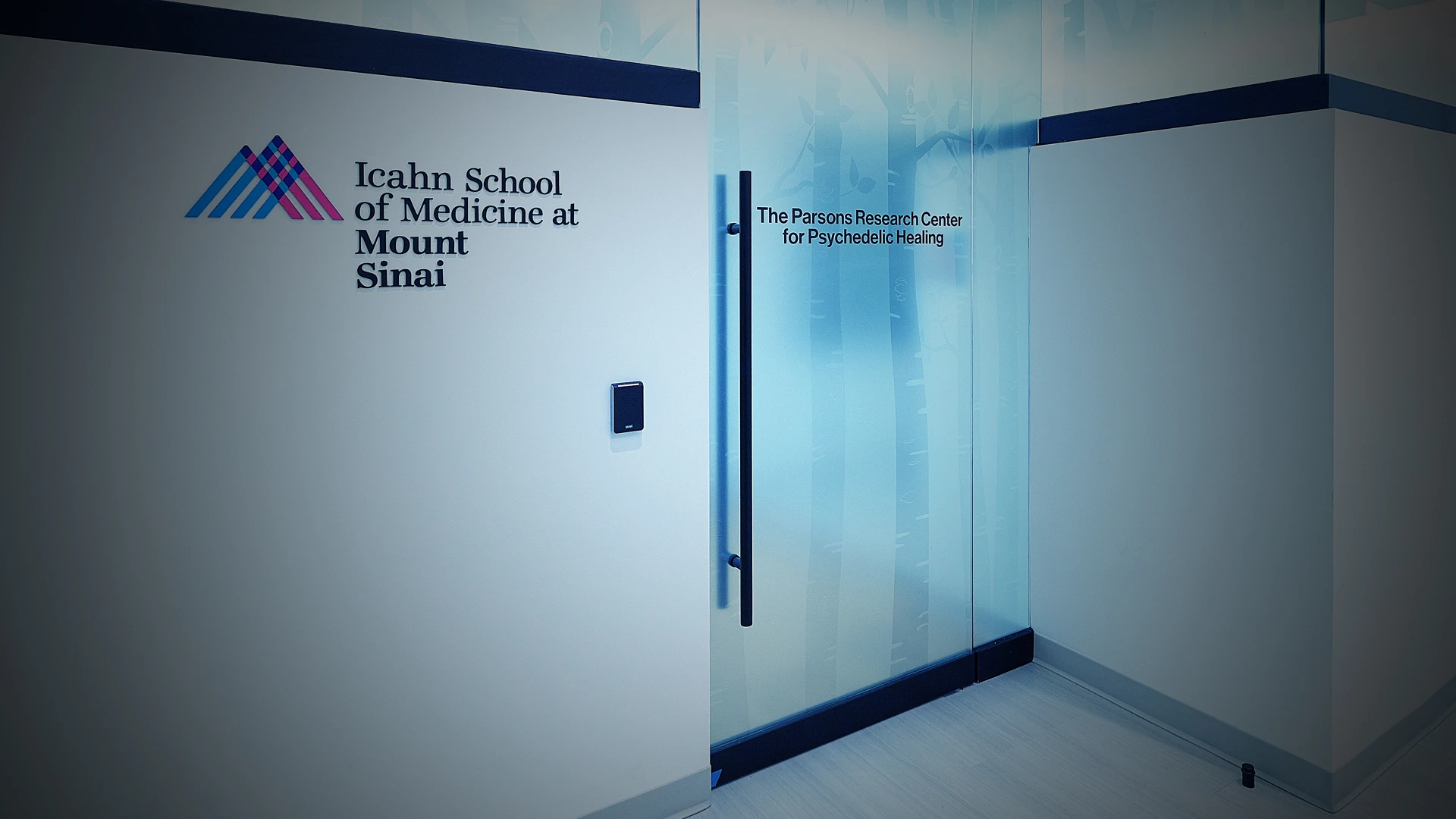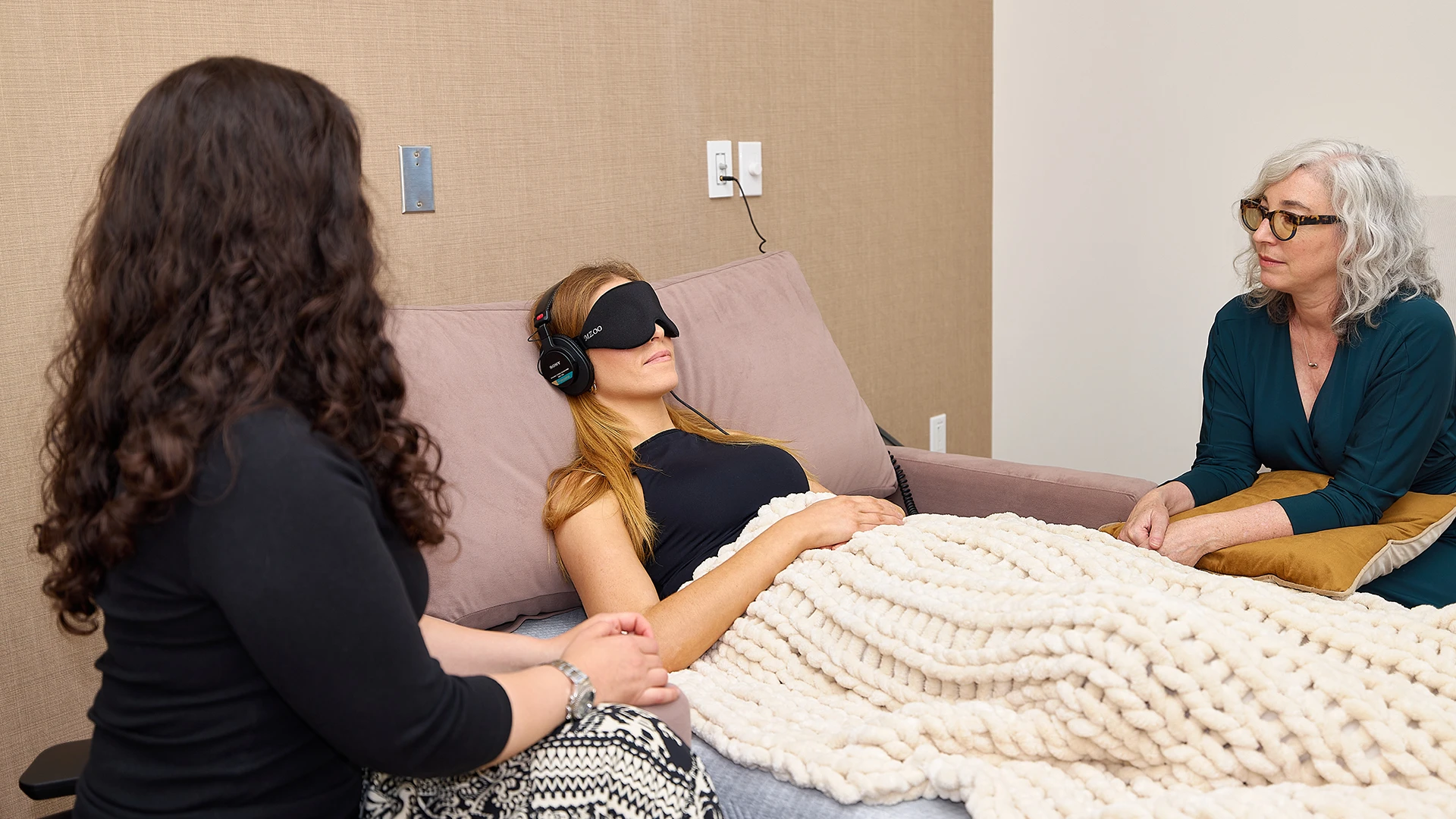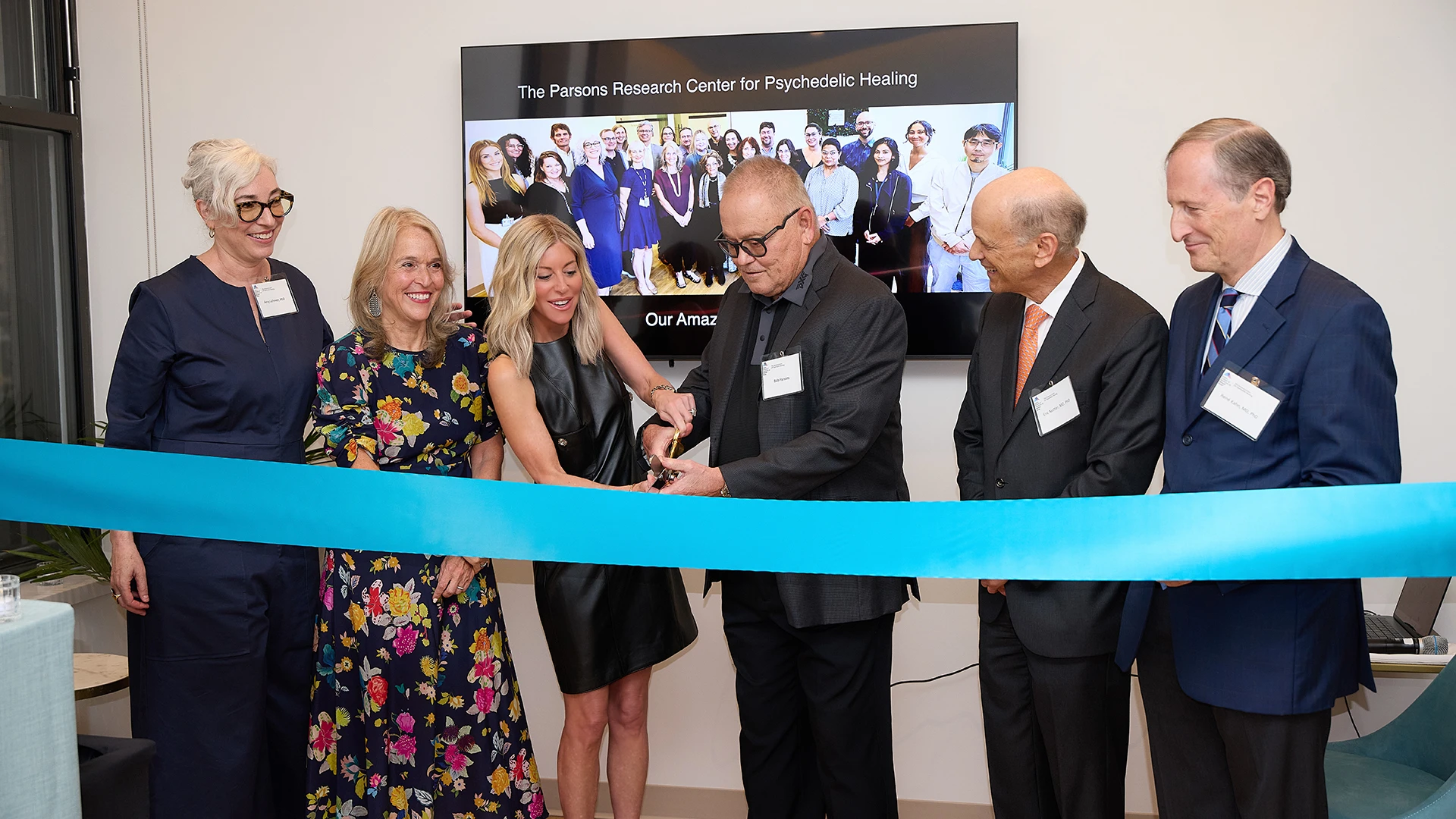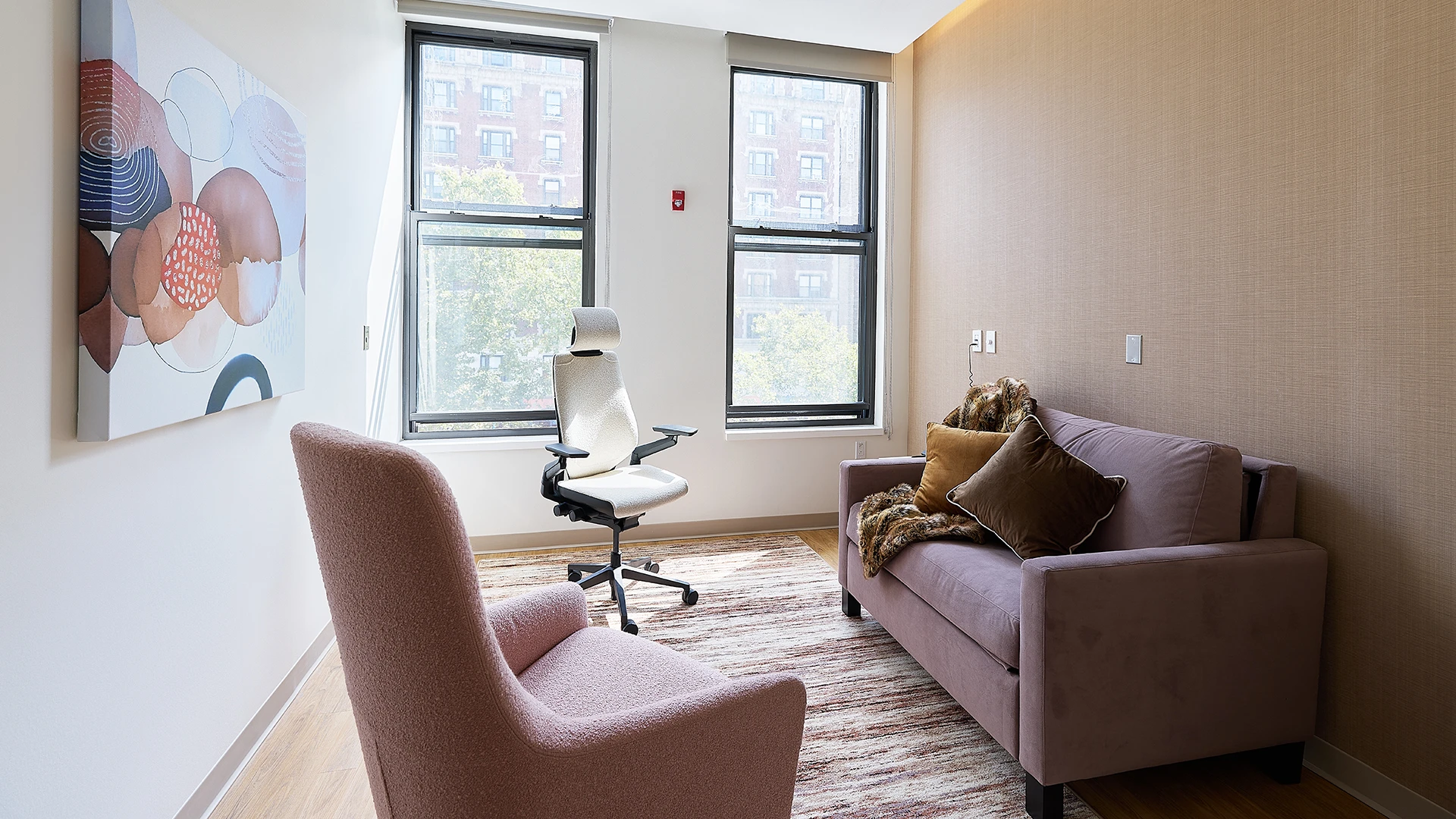Over the past decade, there has been a surge of interest in psychedelic-assisted psychotherapy—where compounds such as MDMA or psilocybin are integrated into therapeutic protocols. At the forefront of this movement, the Department of Psychiatry at Mount Sinai has been pioneering research in this field. In September 2024, this work received a transformative boost with the expansion of its psychedelic research center.
With the support of committed donors and a foundational $5 million gift from The Bob & Renee Parsons Foundation, the newly named Parsons Research Center for Psychedelic Healing celebrated its new opening with a ribbon cutting event in September. The newly built facility includes six treatment rooms and a group therapy room, with features to enable therapy supervision, teaching, and research.

The psychedelics research center at the Icahn School of Medicine at Mount Sinai has expanded, following a foundational gift from The Bob & Renee Parsons Foundation. The transformation allows work on MDMA, psilocybin, ketamine, and other compounds for psychiatric conditions to reach new heights.
“This expansion allows us to elevate our work to new heights,” said Rachel Yehuda, PhD, Director of the Center, which was established in 2020. “Our ongoing studies of MDMA, psilocybin, ketamine, and other compounds—focused on conditions such as depression, post-traumatic stress disorder (PTSD), and anxiety—are poised to make a transformative impact on mental health care.”
A Space for Healing, Research, and Education
For individuals struggling with depression, anxiety, and stress-related conditions, standard treatments such as medication and psychotherapy often fall short. For this population, research has increasingly demonstrated the potential of psychedelic-assisted psychotherapy to provide relief where traditional methods have failed.
“Psychedelic compounds appear to catalyze profound therapeutic breakthroughs, particularly for those who have not responded to standard treatments,” said Dr. Yehuda.
In collaboration with the James J. Peters VA Medical Center in the Bronx, the Center has been at the forefront of testing MDMA-assisted therapy for veterans and psilocybin for civilians with PTSD. To date, the Center has also trained more than 250 clinicians across the country, enabling a ripple effect of expertise and access nationwide.

Rachel Yehuda, PhD, Director of the Parsons Research Center for Psychedelic Healing, leads psychedelics research at the Icahn School of Medicine. Current work her team is investigating includes MDMA-assisted therapy for veterans and psilocybin for civilians with post-traumatic stress disorder.
The expanded facility offers new opportunities for research, including advanced imaging and molecular epigenetic studies, which will examine changes in brain activity following psychedelic psychotherapy, as well as investigating the impact of these therapies on gene-expression networks. The Center’s sophisticated video-monitoring systems will allow the use of AI and computational neuroscience to analyze therapy sessions to generate diagnostic and predictive signals, and to leverage development and training on optimal therapeutic interventions.
The new facility has been purpose-built to offer a warm and welcoming environment, with the comfort of patients, staff, and students in mind. “The space was designed to embrace the importance of setting in therapeutic outcomes,” said Amy Lehrner, PhD, Associate Director of the Center. The Center takes advantage of natural light, views of nature, and other complementary design elements meant to communicate serenity for patients, she added.
Forging Ahead With Rigorous Clinical Trials
The Parsons Research Center for Psychedelic Healing expansion comes at a pivotal time, noted Dr. Yehuda. “The body of evidence supporting psychedelic-assisted psychotherapy has grown substantially over the past decade, demonstrating promise for patients who have exhausted other treatment options. The recent decision in June by the Food and Drug Administration (FDA) to delay approval for MDMA-assisted therapy highlights the importance of continuing to build on this foundation with uncompromising scientific rigor and innovative research,” she noted.
In June 2024, an expert panel that advises the FDA voted against recommending MDMA in conjunction with therapy for PTSD, citing concerns about efficacy and safety. By August, the FDA formally declined to approve MDMA-assisted therapy for PTSD.
“The body of evidence supporting psychedelic-assisted psychotherapy has grown substantially over the past decade, demonstrating promise for patients who have exhausted other treatment options. The FDA’s decision highlights the importance of continuing to build on this foundation with uncompromising scientific rigor,” said Dr. Yehuda.
The Center’s team remains steadfast in its commitment to advancing the field and ensuring the momentum generated by academic researchers does not wane.
New studies are already underway, including trials exploring group-based psychedelic therapy models, ketamine-assisted psychotherapy, underlying mechanisms of action, and MDMA-assisted therapy for other conditions such as bulimia nervosa and intergenerational trauma. The Center will also study the impact of MDMA-assisted therapy on burnout among providers of mental health care.
In addition to clinical research, the Center is pioneering studies on scalability and affordability to address the broader challenge of making psychedelic-assisted therapies accessible to patients across socioeconomic backgrounds.
“While the regulatory landscape remains uncertain, our mission is clear: to provide hope and healing through evidence-based, accessible treatments that meet the needs of all patients,” said Dr. Yehuda.
Featured
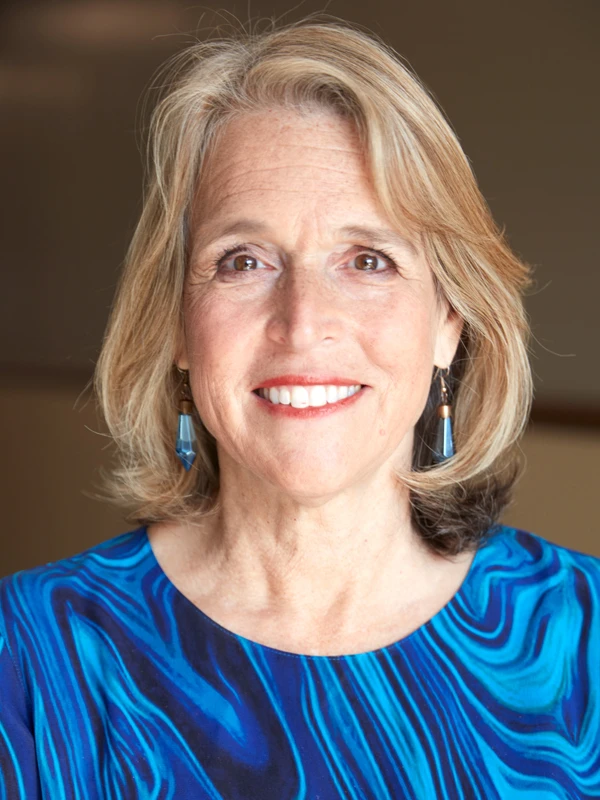
Rachel Yehuda, PhD
Professor in Psychiatry and Neuroscience of Trauma; Director of the Center for Psychedelic Psychotherapy and Trauma
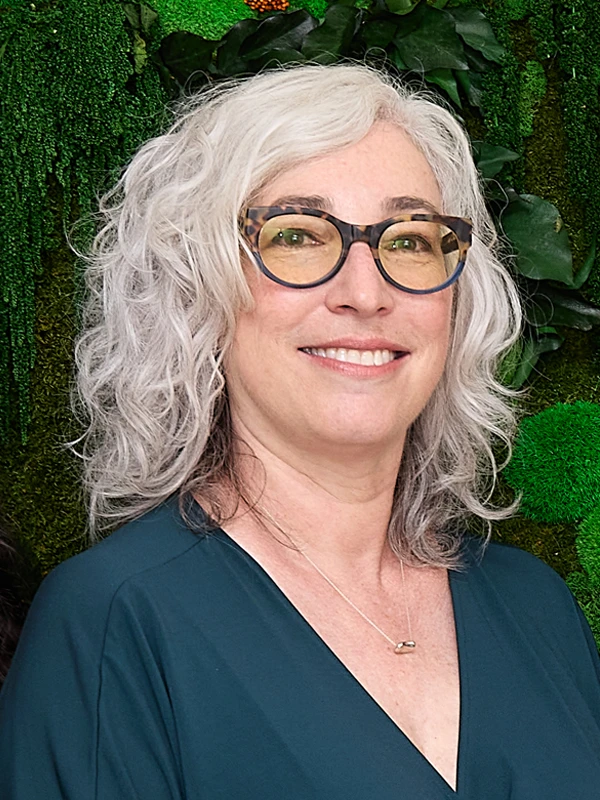
Amy Lehrner, PhD
Associate Director, Parsons Research Center for Psychedelic Healing
